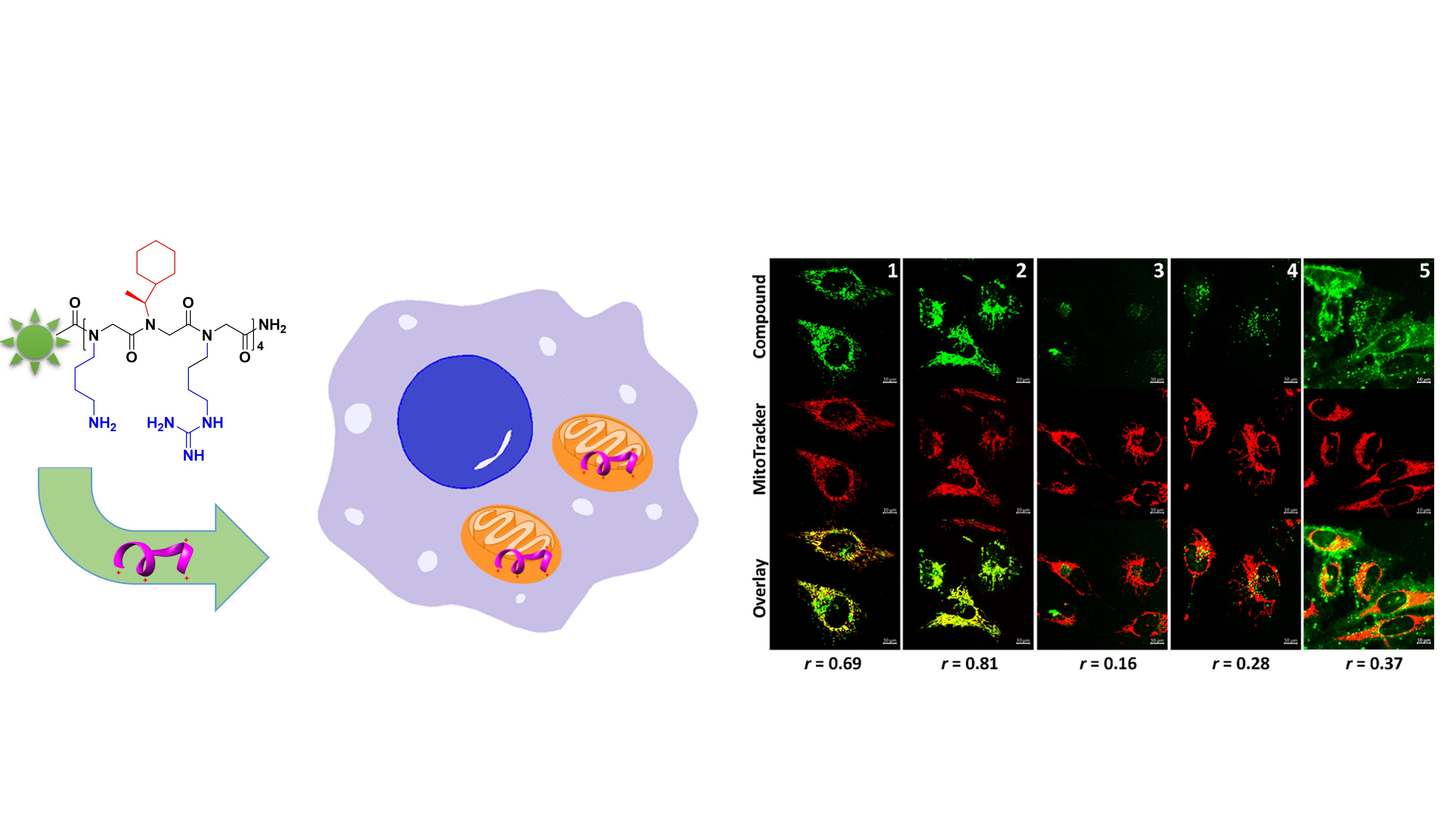|
Mitochondria are known to be involved in cellular metabolism, calcium homeostasis, and signal transduction. Accumulated damage caused by singlet oxygen, from performing the various roles, provokes mitochondrial dysfunction. In particular, various diseases such as cancer, diabetes, and neurodegenerative disorders have been reported to be associated with damage to mitochondria. Therefore, mitochondria-targeting vehicles have been actively studied as therapeutic methods for the removal or recovery of damaged mitochondria. Small molecules and peptide-based compounds have been reported, but cargo-dependent toxicity or proteolytic degradation reduces the efficiency of a specific mitochondria-targeting transporter. To circumvent this, we developed a new kind of mitochondria-targeting method. Peptoids are N-substituted oligoglycines and have been selected as promising candidates to complement existing methods. Guanidine-rich and hydrophobic sequences are known to be essential for targeting mitochondria, and various types of hydrophobic monomers have been introduced to test their efficiency. Among them, the peptoid containing the cyclohexyl monomer showed the highest effect on cellular uptake and mitochondrial localization, and its toxicity was also found to be very low. In addition, compounds with secondary structures exhibited better activities than those without, showing a relationship between structure and biological activity. The present mitochondria-targeting peptoids are expected to be able to selectively deliver various biologically active species to minimize side effects in future mitochondrial-related disease treatment studies. |

|
 122nd General Meeting of the KCS
122nd General Meeting of the KCS
 122nd General Meeting of the KCS
122nd General Meeting of the KCS